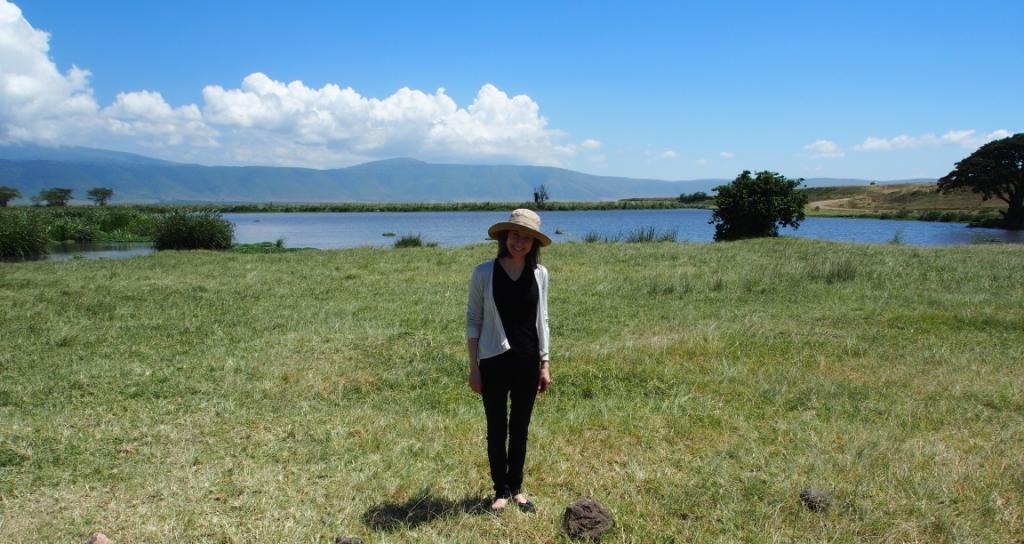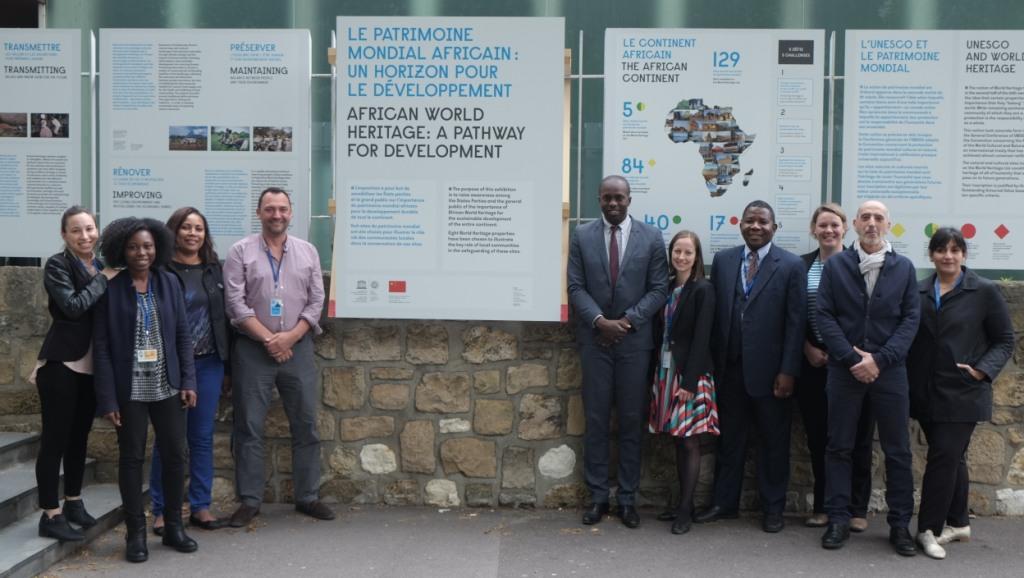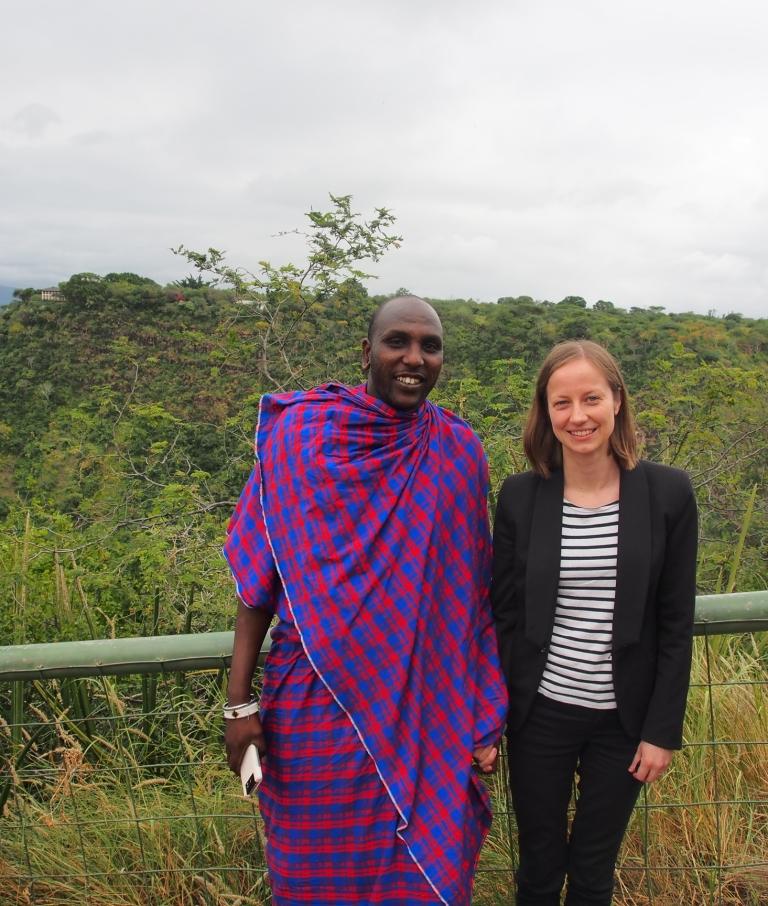by Maria Anna Clarissa de Leon Jensen, (ELP 2016), Student at the University of Copenhagen Denmark
"We need to implement “pro-poor” environmental change policies."
These are the words of Susanna Kari, 32, an Associate Expert on natural heritage at the UNESCO World Heritage Centre located in Paris, where she currently resides. With a background in Environmental Change and Policy from the University of Helsinki, Susanna has worked for a number of years as an environmental and climate change advisor on projects as well as advocacy work towards governments to take the most vulnerable people on the planet into account when negotiating on the global arenas and designing their development policies.
Susanna at the Ngorongoro Conservation Area World Heritage site in Tanzania.
Tell me about the work of the World Heritage Centre.
We are mandated by the governments in the UN to be the Secretary of the World Heritage Convention. We facilitate governments applying this Convention in their own national context, in addition to organising the annual meetings of the World Heritage Committee, which is the decision-making body of the Convention. We work with Advisory Bodies, who are experts in the field of nature and culture, on the nomination and inscription of new sites for the World Heritage List. I have specifically worked with community engagement approaches to ensure the benefits for the local communities and to engage them in the governance of the sites. Also, I’ve worked a great deal on climate change adaptation in terms of understanding how climate change impacts the sites and how we can protect the values for which they were inscribed in the World Heritage List.
Africa unit of the UNESCO World Heritage Centre.
What do you hope to gain from participating in the Beahrs Environmental Leadership Program?
I was attracted to the Program by the focus on environmental management and leadership approach. UC Berkeley being a leading research university, I expect to be equipped with the newest knowledge in the field of sustainable development and with concrete tools, especially in terms of developing personal skills so we can efficiently facilitate change, engage in projects and work in teams. These are all valuable skills regardless of your field or occupation. I am also excited to learn from the interesting combination of people in the group and to learn from their experiences.
During group discussions, you've mentioned taking a look at the structure of the systems in sustainable development besides only looking at the different approaches. Could you elaborate?
Actors at different levels tend to stick to certain types of development models without really asking the questions, “Is it good for our people? Does it help the poorest? Does it help with values other than financial growth and GDP?” There might be other values and objectives you want to achieve as well, such as gender equality and access to natural resources. The economic approach tends to dominate the dialogue about sustainable development, but the social, cultural and environmental development need to be in balance as well.
How do you think we can expand our focus to these other values? How do we shift our mindsets towards incorporating social, cultural and enviornmental aspects in sustainable development?
These values are well-recognized. For example, in the Agenda 2030 for Sustainable Development, the governments of the UN acknowledged the different aspects of sustainable development. It’s about power relations as well. Imagine a poor local community, who might not have the same power to negotiate in comparison to investors with large financial assets. It’s a matter of being aware of these structures, which we might not always be able to change, but we can at least try to pursue a balanced approach.
Solving the complex environmental issues we face today cannot solely rely on the means of natural sciences, but also through working with cultural and social issues. Social and cultural issues are about identity, about a sense of belonging and having a past which often defines your future. I believe cultural diversity can strengthen people to create their own sustainable development plans to succeed in what they wish to pursue.
Do you believe your work at the World Heritage Centre contributes to a better understanding of cultural identity and heritage? And that an incorporation of this understanding will improve the way we face the challenges of the world today?
I truly believe the World Heritage Convention is a great mechanism to tackle today’s challenges. The idea behind the Convention was formulated by politicians and practitioners about 40 years ago and is fueled by the notion that some places on Earth are so valuable and representative of humankind’s common heritage that we want to conserve them for the future generations, which is the essence of sustainable development.
The Convention has three unique features. The first is the sustainable development aspect. Second, it is one of the few mechanisms that acknowledge both nature and culture, as these two aspects are very much integrated. Our culture shapes the environment we live in and culture is shaped by its interaction with the environment. The third and very important feature is the Convention being one of the few multilateral agreements with a compliance system. Through the work of the Committee, we have an in-built monitoring mechanism to help the States’ Parties conserve the values at the site in addition to a mechanism which transfers attention and funding for the management of these sites.
Arpakwa M. Ole Sikorei, Community Conservation and Culture at Ngorongoro Crater, Tanzania.
In many places, communities are often the traditional custodians of the World Heritage sites, whereby their involvement is important to ensure the continued protection of the sites. In addition, the sites can also significantly contribute to the social and economic development and the quality of life for these communities.



